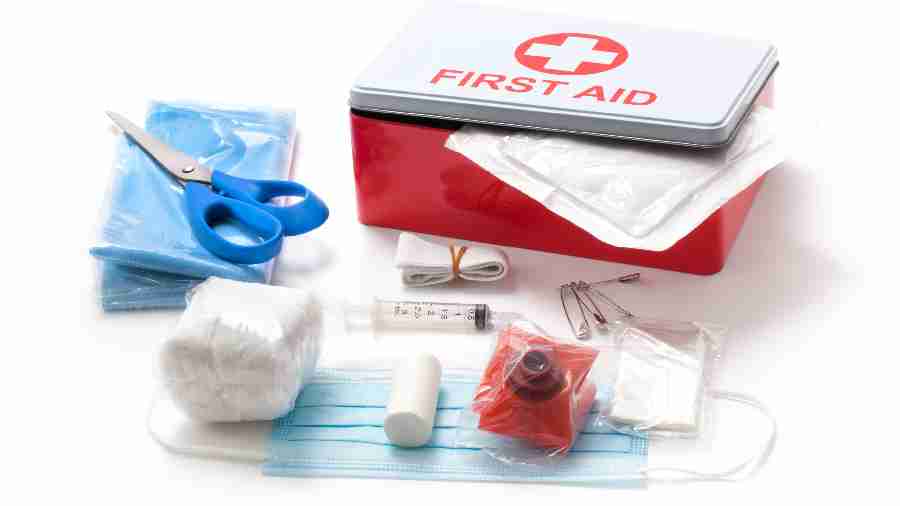If we are lucky, we can sail through life without ever having to face a life-threatening emergency, especially if we are not doctors, nurses or paramedical personnel. However, life is uncertain, and we might face a situation that poses an immediate risk to life or needs immediate intervention for relief. Here are some common emergencies that you may face and what you can do to tackle them.
Heart attack
One of the most typical emergencies is when a person seems to be having a heart attack. They clutch their chest, and bystanders think they will collapse and die in front of you.
Remember that in a heart attack the pain is not present in the front of the chest alone. It radiates up the neck, down the arm, moves to the back and is associated with sweating, fainting and pallor. It lasts for 15 minutes or more. Most importantly, on pressing, there is no tender localised area of pain on the chest wall.
What to do? Take a tablet of aspirin, crush it and administer it with water. Aspirin given during a heart attack prevents it from progressing till you reach the nearest hospital. In 23 per cent of cases, it actually prevents sudden death.
Insect problems
A insect entering the ear is a sudden, painful, unexpected occurrence. The first thing to do is turn the head towards the affected side, tilt it downwards and shine a bright light like a torch into the ear. With luck, the insect will be attracted to the light and fly out. If it doesn’t, place a few drops of baby oil in the ear. The insect will float up and fall out. The important thing is not to place buds or fingers in the ear. That will push the insect further inside and damage the eardrum
Insects can also sting or bite a person. Immediately remove any sting or hair that may be at the bite site. Wash the area with soap and water and then apply ice. This will usually reduce any pain or swelling. If there is generalised itching, take an antihistamine and proceed to a doctor.
Toothache
Toothaches have a penchant for occurring in the middle of the night. They are unbearable, as anyone who has suffered knows all too well. To hold out till morning, take ice-cold water and swish it in your mouth. After the first numbing stab of pain, it will dull the pain. Then chew on scraped ginger and a clove. Head to the dentist in the morning.
Electric shock
Many houses do not have proper earthing. This needs to be addressed. Some of the older constructions need proper trips or fuses. If the fuse blows too often, someone may connect the wire directly, dispensing with safety features altogether.
Any appliance can cause a shock, especially if it is old or the wires are frayed. It can be severe enough to kill. When someone is receiving a shock, they may be unable to let go of the wire or appliance. Do not attempt to pull them away, as that will only result in your getting a shock too. Instead, turn off the switch or mains using a wooden handle (a broom or mop). Make sure you are wearing rubber-soled footwear. A shock can be fatal.
First aid
To tackle emergencies, it is important to have a first aid box which you need to store safely away from children.
It should contain:
- a pair of scissors
- a scribbling pad and pen
- a torch (that works)
- copies of any insurance or hospital cards n a gauze bandage roll
- a roll of cotton
- a few band-aids
- a tube of pain-relieving ointment
- an antiseptic ointment like povidone-iodine
- eye drops, nose drops and analgesic ear drops
Medications that can be stored are aspirin, paracetamol (adult and kid), an antispasmodic and antihistamines like chlorpheniramine maleate (Avil) or diphenhydramine (Benadryl).










